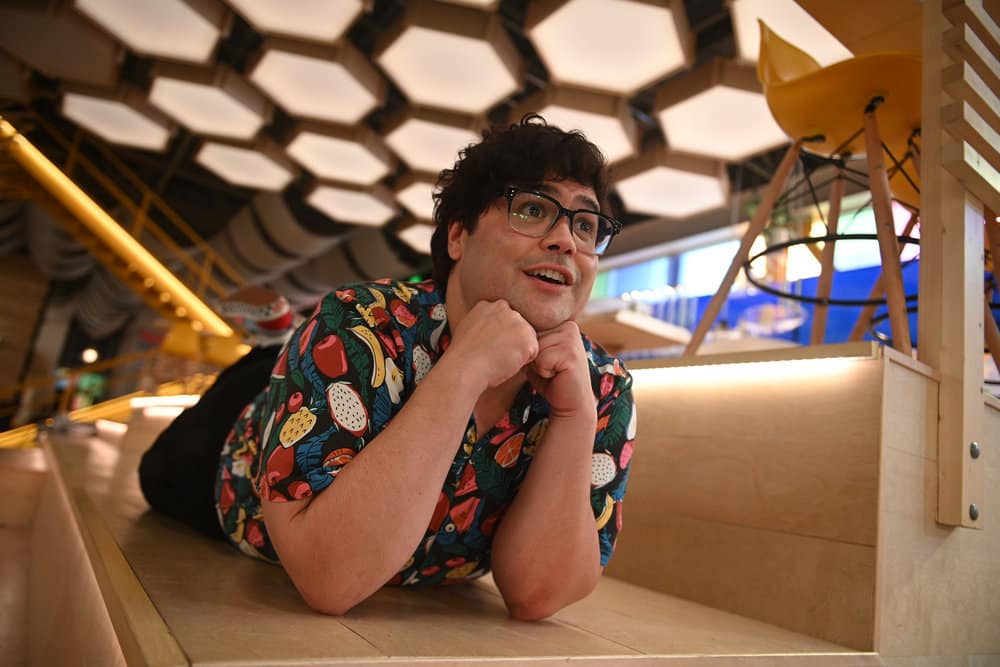Read also:
How to Watch FX Live Without CableHow To Watch AMC Without CableHow to Watch ABC Without CableHow to Watch Paramount Network Without CableA strong grasp of grief and inner turmoil runs up against weak choreography and a closed-off lead character to make Zoey a frustrating near-miss.
Six weeks after her father Mitch’s (Peter Gallagher) death and funeral, Zoey (Jane Levy) emerges from her self-imposed exile, spurred on by Mo (Alex Newell). In her disconnect from the world, things have changed. Joan (Lauren Graham) is on her way to greener pastures. Leif (Michael Thomas Grant) has done his best to run the fourth floor in her absence, resulting in a fraternity-like atmosphere with Tobin (Kapil Talwalkar) as the unofficial lead “brogrammer.” Her dueling love interests Simon (John Clarence Stewart) and Max (Skylar Astin) have become friends. Life moved on while she sat out and recovered. Or tried to recover, anyway.
Zoey’s struggle with grief is the centerpiece of the three Extraordinary Playlist episodes provided to critics. As she careens from one crisis to the next—her brother David (Andrew Leeds) and sister-in-law Emily’s (Alice Lee) struggle with being new parents, her mom Maggie’s (Mary Steenburgen) struggles to be herself without Mitch, her love triangle, her new position at work, and that company’s seemingly unceasing downward trajectory—she flips between totally in control and barely functioning. Heavy stuff for a jukebox musical show, in line with last season, but definitely a bit less…bouncy.
Levy has a tricky assignment this time out. As the one character largely shielded from her “powers”—to hear people’s inner thoughts as musical numbers—she is already the hardest character to get to know. Season 2 compounds this by driving her more internal. Given what we eventually learn, that she is a maelstrom of conflicting emotions and unidentified feelings, it makes a certain real-world sense that she would be so shut down. However, in a show where conflicts are punctuated by belted out song and dance numbers, it places the audience at an ever-increasing remove from the main character. When given a chance to spill some of her turmoil, especially in a reoccurring nightmare ballet motif, Levy nails the struggle of a Type A person who no longer can understand, nevermind master, the rules of her life. Still, so much of her on-screen time demands she hide herself away, leaving the show uncomfortably decentralized.

Speaking of the nightmare ballet, that’s the height of the show’s choreography in these opening episodes. Depicting Zoey trapped, first in her parents’ home than her own apartment, Levy dances with a sort of fluid chaos. She nails each step but there’s a sense of everything teetering on the edge of pure collapse. It’s no easy task to create a dance that is impeccably planned out but still feels desperate and out of control, but Playlist makes it happen.
At other places though, the show still struggles with making the choreography work on the small screen. The larger numbers work well enough, bustling with energy if not always particularly creative steps. Individual dance scenes similarly seem to “get” how to fit Playlist’s scale. Scenes between two or three characters, however, stumble over and over again. Reduced to big hand gestures in small places, the compositions often feel like they are both overblown and undercooked. The people feel like they’re collaborated to park it in the balcony, the use of space more akin to a one-act black box production. Playlist repeatedly shows it understands emotions well in the writing only to strand its actors in dance numbers that seem ill-equipped for the flat-screen in our living rooms.
Levy nails the struggle of a Type A person who no longer can understand, nevermind master, the rules of her life. Still, so much of her on-screen time demands she hide herself away, leaving the show uncomfortably decentralized.
Again, this is a shame, because the writing is smart about emotions in a way one might not expect of a broadcast jukebox musical tv show. It deftly dances in and around romantic comedy tropes, touching them before pulling back just in time before it tips the show’s dynamics into frustration and annoyance. This is a show where people do, sooner or later, communicate like human beings, saving viewers from many “damn it just talk to each other!” moments that plague similar entries in the genre.
The songs also feel well-curated. Although they do seem to often default to either “classic Broadway” or “on the radio in the past 2 years” as though nothing between those two poles exist, they nonetheless feel thoughtful within those parameters. Rarely does the show fall into the trap other jukebox musicals do, where it’s clear they liked a song and built the scene around it rather than vice versa. Here the music serves the situations, not vice versa.
All told, it’s a frustrating experience. The amount Playlist gets right certainly outweighs its shortcomings. Those shortcomings, though, are virtually impossible to ignore. Season 2 is heavy with promise, but it has a lot to improve to realize those possibilities.
Zoey’s Extraordinary Playlist Season 2 jazz hands into its debut on NBC today, January 5, at 8 pm Eastern/Pacific on NBC.